Local News
Valedictory speech delivered to graduating medical students sets off storm of controversy
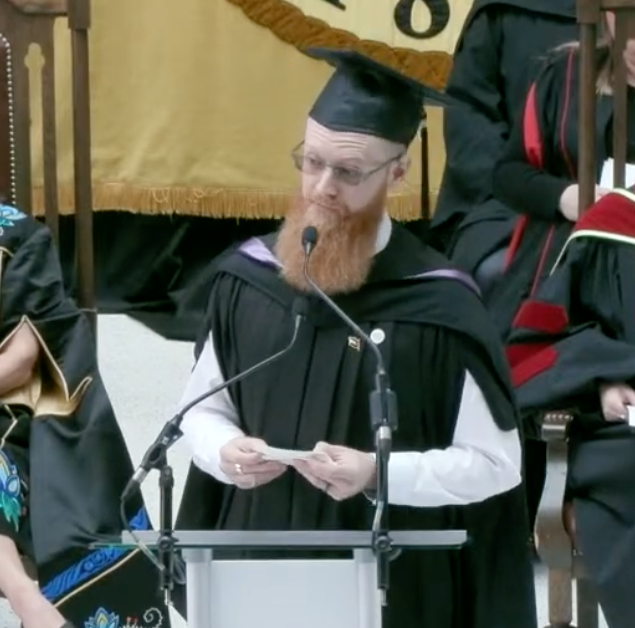
By BERNIE BELLAN A valedictory speech delivered to the 2024 class of medical school students graduating from the Max Rady College of Medicine at the University of Manitoba on Thursday, May 16, has set off a storm of controversy.
During his 10-minute speech, Dr. Gem Newman, who described himself as a “pasty-faced white man,” veered into a strongly worded criticism of Israel toward the end of his approximate 10-minute speech.
Here are the comments he made with respect to Israel’s war in Gaza:
“I call on my fellow graduates to oppose injustice -and violence – individual and systemic. I call upon you to oppose settler colonialism, both at home and abroad. I call upon you to stand in solidarity with Indigenous people everywhere, here in Treaty One Territory, where an Indigenous man can expect a life ten years shorter than mine – and in Palestine (ed. note: loud cheers erupted at that point from among the students), where Israel’s deliberate targeting of hospitals and other civilian infrastructure has led to more than 35,000 deaths and widespread famine and disease.
“Many medical organizations, including the W.H.O. and Medecins sans Frontiere, and countless unions, including the Canadian Federation of Nurses Union, have repeatedly called for a ceasefire in Gaza, while there has been deafening silence from the Canadian Medical Association, Doctors Manitoba and PARIM (Professional Association of Interns and Residents of Manitoba), and so I call upon you to join me in calling for a lasting ceasefire in Gaza. Join me in calling for unrestricted humanitarian and medical aid in Gaza. Join me in calling for an end to the targeting of medical facilities, medical staff, and journalists.
“I’m sure that some of you here today are worried that you may face censure for speaking out against the genocidal war that Israel is waging upon the people of Palestine, that it could jeopardize your career before it’s even begun. I understand that fear…”
Dr. Newman’s speech was greeted with a standing ovation from his fellow graduating doctors.
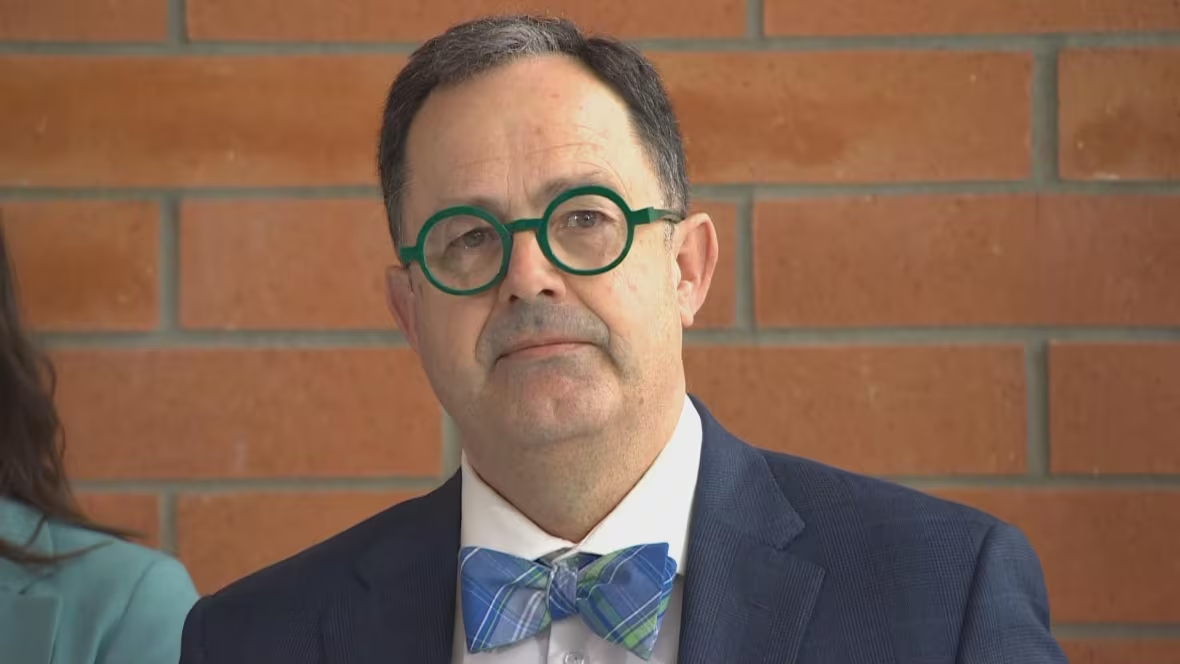
The next day, the dean of the Rady College of Medicine, Dr. Peter Nickerson, issued a strongly worded criticism of Dr. Newman’s remarks:
Yesterday, we celebrated the convocation of 106 new physicians. We came together with our friends and family to celebrate a diverse group of individuals who are beginning their career as doctors.
Part of our convocation tradition in the Max Rady College of Medicine is to hear an address from the class valedictorian. This has historically been an encouraging, congratulatory message and not a political platform. The speech is an honour and is meant to highlight, showcase and celebrate the academic excellence, resiliency and determination of every student, no matter their background.
I have heard from individuals who were present yesterday and who were disappointed and alarmed by the political message in the valedictorian’s address. I share these concerns. I, too, am disappointed that the address was delivered in a way that didn’t represent all students and that was disrespectful to some audience members who were there to celebrate and be celebrated. This isn’t the purpose of a valedictorian address and the speech should have better reflected shared experiences, successes and a commitment to serve all communities.
The valedictorian was expressing his own views, and this was not a message vetted or endorsed in any way by the College.
The University of Manitoba is steadfast in its commitment to freedom of expression; both speech and counter-speech are equally protected. However, freedom of expression has limits and comes with responsibilities. It is my view as Dean that a convocation address is different than a classroom setting, different than an opinion piece in a newspaper – it is an academic celebration for a diverse community. Statements made in this address were divisive and inflammatory. They should be taken as the views of one student, and do not reflect the views of the College nor the diverse perspectives of its students.
As we continue our convocation events, may we be mindful of the diversity of our community, our common humanity, and the purpose of these celebrations.
Dr. Peter Nickerson
Vice-Provost (Health Sciences)
Dean, Max Rady College of Medicine
Dean, Rady Faculty of Health Sciences
University of Manitoba
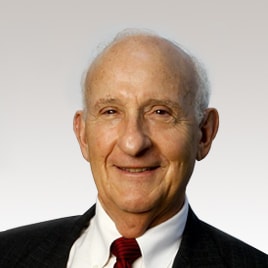
On Monday, May 20, Ernest Rady, who made a donation of $30 million to the University of Manitoba in 2016 – the largest single donation to the university in its history, and whose father, Max Rady, now has his name on the “Rady Faculty of Health Sciences” and the “Max Rady College of Medicine,” sent the following email in response to Dr. Newman’s remarks:
Via Email
University of Manitoba
Dr. Michael Benarroch, President and Vice-Chancellor
Dr. Peter Nickerson, Dean, Rady Faculty of Health Sciences
Re: Max Rady College of Medicine Convocation Speech by Valedictorian
Michael and Peter:
I write to you today because I was both hurt and appalled by the remarks the valedictorian, Gem Newman, gave at last week’s Max Rady College of Medicine convocation, and I was extremely disappointed in the University’s inadequate response. I have been fortunate in my life to be able to support the causes close to my heart, including the University of Manitoba. As you know, when Evelyn and I donated $30 million to the University’s Faculty of Health Sciences in 2016, that gift was in honor of my parents, and in particular, the gift to the College of Medicine was in honor of my father, Maxwell Rady. Newman’s speech not only dishonored the memory of my father, but also disrespected and disparaged Jewish people as a whole, including the Jewish students who were in attendance at that convocation – some of whom I’ve heard from.
My father, born Avraham (Hebrew for Abraham) Radiskevich, immigrated to Manitoba from Russia in 1893. He, like so many other Jews, fled religious persecution, seeking a better life in Canada. He was lucky. Millions of others – whether during the Russian pogroms, the Holocaust, or the countless other purges of my people throughout history – were not so fortunate. Those horrors were made possible because of a set of beliefs (stereotypes and tropes) so entrenched and pervasive as to be taken as fact.
That same set of beliefs allowed the University of Manitoba to justify its decision to impose admissions quotas to keep Jews out. Despite those quotas, my father was one of the very few of his faith to be admitted to the University’s medical school, which is now named in his honor.
And yet, the University allowed the Max Rady College of Medicine’s valedictorian to spew these hateful lies to a captive audience, and now posts that antisemitic rhetoric on its website for all to see. And the University’s only response is a lukewarm message posted elsewhere on its website about differing opinions and appropriateness of setting for expressing such “opinions.”
Having seen where this kind of speech (and the excuses made for it) have led in the past, I cannot be silent. When I make a gift to an institution, I do it because I believe in that institution and I trust its governing body to do important, significant, and good work with that money. I therefore make it a point not to intervene or tell an institution what it should or should not do. But in this instance, by remaining silent, I would be complicit. So I am speaking out now because I must. Because so many like Gem Newman and the students cheering in the audience and the University itself, whose response to what is happening on its campus has been inadequate, may not even realize all the realities of the situation. The issues are far too complex for a mere letter, and I should not have to be the one to point this out; nonetheless, apparently it bears emphasizing. It is very easy for individuals like Mr. Newman to spout slogans and quips like “settler colonialism” and “genocidal war,” but if they do not take the time to understand the very long, complex, and nuanced history behind what is happening in the world today, then not only are they intellectually dishonest, but they are perpetuating the same harms that have existed for centuries. Those words are not political opinion. They are hate speech and they are lies. They espouse the same age-old prejudices about Jewish omnipotence and thirst for domination that have been used for centuries to justify the atrocities committed against this religious group, which makes up less than 0.2% of the world’s population and 1.4% of Canada’s.
By failing to call out Gem Newton’s words for what they are, the University is no better.
Having failed to vet the valedictorian’s speech in advance (despite the patent risk that something like this would likely occur, given what has happened at other universities), I beg that the University of Manitoba step up and finally do the right thing. Take down the convocation video and do not repost it unless the valedictorian’s entire speech is removed. Post a revised letter from the dean, not only on UM News, but on the same page as the edited video. Condemn, in no uncertain terms, Gem Newman’s remarks. Acknowledge that they were not only inaccurate, but flat-out lies, that they were hurtful to the University’s Jewish students and all people of the Jewish faith, and that the remarks do not have a place in any setting at the University. Denounce antisemitism in all forms it takes, even in its latest iteration as espoused by your valedictorian.
Advocating for the protection of one group of people, while in the same breath calling for the destruction and elimination of another, is not advocacy. It is hate. It is the very opposite of the words that your graduates spoke last week when they recited the Physician’s Pledge, vowing not to permit considerations of creed and ethnic origin to intervene between their duty and their patient.
Be as bold as you tell your students to be. Do the right thing: Speak out unequivocally. Take action. Do not be like all of those who came before you, acquiescing to prejudice and hatred because you do not want to ruffle feathers, or worse, because you believe it is justified.
Ernest Rady
Cc: Anne Mahon, Chancellor
Local News
New Israeli restaurant opens in River Heights

By BERNIE BELLAN (July 6, 2025) It’s been a long time since our community has been able to welcome the opening of a restaurant that specializes in Israeli food.
That void is now going to be filled with the opening of The Green Falafel, at 1833 Grant (corner of Centennial – next to the Subway).
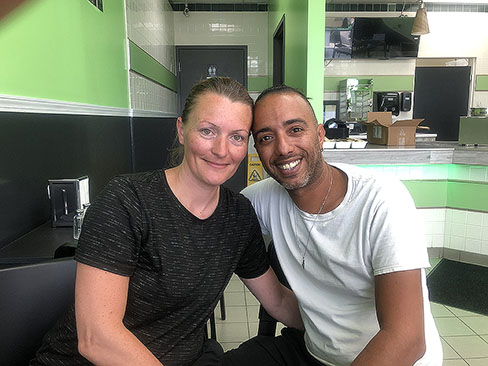
The restaurant is the fulfillment of a dream long held by the husband and wife team of Ariel and Eden Maudi, who have been living in Winnipeg the past 11 years.
Ariel, who was born in Israel and grew up in Beer Sheva, says that he worked in telecommunications in Ramat Gan for several years. He adds though that he had always dreamed of owning his own falafel stand in Israel, but life was difficult there and he decided to come to Canada as a tourist to see whether there were any opportunities here for him, Eden and their two young children.
Eden, who was born in Russia and moved to Israel with her family in 1996, stayed behind with the two kids, who were both pre-schoolers, while Ariel tested the waters in Canada first.
Ariel says he came to Canada as a tourist in 2013. His first stop was in Toronto, where he acquired his 1st class driver’s license. At the end of 2013 he moved to Winnipeg where he began working as a truck driver. Soon he found himself employed as a successful sales person at Vickar Nissan where, he says, he once achieved the status as the top car sales person in Canada. After working at Vickar Nissan for a number of years, Ariel began working as an installer for Bell MTS.
Meanwhile, Eden began working at a Walmart, later at the Costco on Regent.
But, when the opportunity to move into a space that had been previously occupied by another restaurant, but which had closed, became available, Ariel and Eden decided to open their own Israeli restaurant in an area that hadn’t seen Israeli food served since the controversial closure of Bermax Café in 2019.
The Maudis say that they will be serving a variety of Israeli dishes – all vegetarian, and that they will be fully kosher.
The “green” in Green Falafel, by the way, Ariel Maudi explains, comes from the cilantro and parsley that are added to the chickpeas. In addition, their pitas will be coming from Israel and will be baked fresh daily.
The Green Falafel will be open from 10-8 daily. Delivery will be available through Uber Eats and DoorDash.
Call 204-557-7837 for information.
Local News
Previews of shows with Jewish performers at this year’s Fringe Festival July 16-27
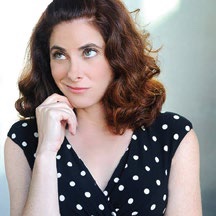
For show dates and venues go to winnipegfringe.com
By BERNIE BELLAN As has been our custom for many years now we try to find shows that have either Jewish performers or themes that would have particular appeal for Jewish audiences. Many of the Jewish performers at this year’s festival have been here before, but several are new. In no particular order here are blurbs about the shows we’ve found that fit the criteria I’ve just described. (By they way, if we’ve omitted a show that should be included in our list there’s plenty of time to get added to this post. Just drop me a line at jewishp@mymts.net.)

You’ve Been Served: A One-Woman Show About Divorce, Cults, and Coming of Age at Midlife
Noemi Zeigler
You are hereby summoned… to laugh, cry, and maybe belt out a Streisand number in solidarity. You’ve Been Served is a raw and riotous solo comedy by writer-performer Noemi Zeigler. It all begins when Noemi is served divorce papers on top of a garbage bin lid while taking out the trash—an undignified start to a full-blown midlife unraveling.
At 50, still clinging to her dream of becoming a singer, she falls under the spell of a music producer slash self-help guru, joins a spiritual cult, and, instead of landing a record deal, she lands in jail. Behind bars, with help from her long-buried inner child, she begins to reclaim her voice and her power. Turns out, dreams really do come true—just not the way she expected.
The show features vividly drawn characters—including a manipulative cult leader, a toxic ex-husband, and a jail guard named Roach who shares Noemi’s obsession with the fashion of Charlie’s Angels (the ‘70s TV version, of course.)
With salsa dancing, twerking, and a belting rendition of Don’t Rain on My Parade, Zeigler dives into abandonment, reinvention, and self-rescue. As she confronts perimenopause, she discovers it’s not the end—it’s the new puberty. The show touches on grief, sexuality, and spiritual confusion, but Noemi’s childlike optimism asks: What if your breakdown is actually your breakthrough?
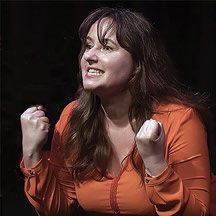
You’re good for nothing… I’ll milk the cow myself
Written & Performed by Natacha Ruck
France, 1981: The first socialist president is about to be elected and young Natacha is ready to implement her own political platform. But first, she has to take down the schoolyard bully,emasculate the rules of French grammar and make off with grandmother’s chocolate.
If you think you know the limits of Jewish mothers, evil grandmothers and transcontinental lovers, meet Natacha Ruck’s family. This true tale of three generations of women, facing three world wars, is equal parts hilarious, shocking and zany.
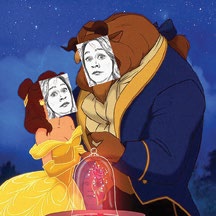
A One Human Being, Potentially Comedic Performance of Beauty and the Beast NEW WORK!
Written & Performed by Alli Perlov
Be our guest! Local high school drama teacher Alli Perlov is back for a tale as old as time. Can she sing? Not really. Can she act? That’s debatable. Will you laugh? Oh… probably.
Perlov plays dozens of characters, some human, some animal, and many objects, in a comedic exploration of Beauty and the Beast.
In an homage to this brilliant musical adventure, through witty commentary and unstoppable energy, Perlov aims to entertain an audience that isn’t forced to be there like her students.

Hockey Sticks and Beaver Pie
Written & Performed by Melanie Gall
Take a trip around Manitoba. From the 30,000 ft. St. Adolphe snow maze to the Narcisse snake dens! After all, where else holds both the title of Slurpee Capital of the World and the Guinness Record for the most people simultaneously howling like wolves?
Deanna Durbin, Terry Jacks and Burton Cummings are among the many homegrown stars, and Hockey Sticks features their music along with original songs and the stories that make this province unique.
Starring Melanie Gall from past shows Piaf & Brel, Ingenue and Toast to Prohibition
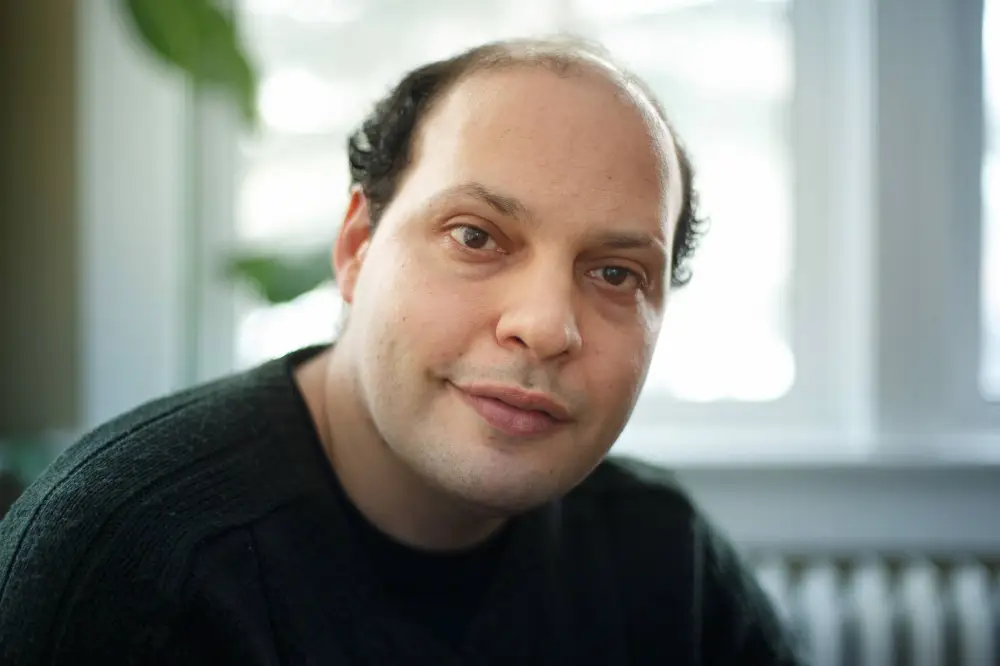
Nerohilarity Exposed
Produced by Adam Schwartz
We all sometimes feel exposed, whether that’s as a fraud or a pretender.
The performers of the award-winning Neurohilarity show, Danielle Kayahara (Laugh Out Loud CBC), Carole Cunningham (Yuk Yuks, The Debaters), Adam Schwartz (Winnipeg Fringe) and Rollin Penner (Yuk Yuks, CBC, Rumors, Winnipeg Comedy Festival), apply a comedic spin to the experiences that make us feel insecure, stripping away the emotional weight with nittygritty jokes and stories that will have you laughing uproariously.
Brilliantly awkward.
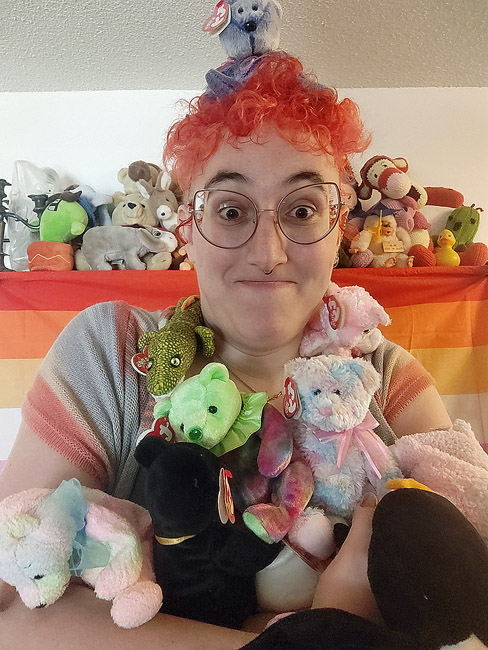
A Lesbian in the Kitchen
Willow Rosenberg
Professional lesbian Willow Rosenberg takes you on a journey through the centuries, superstitions and tablespoons of her lifelong passion for baking in this spiritual successor to 2024’s Jenny Award-nominated A Lesbian in a Bear Store.
Whether you have a favourite spatula, bake once or twice a year, or live in constant fear of being told to “just fold it in”, this one-woman show about family, joy, tradition (but make it gay),
Judaism, comfort, home (but make it gayer*), love, chemistry and magic is for you!
*Who’re we kidding, it’s all gay!

Eleanor’s Story: An American Girl in Hitler’s Germany
Written & Performed by Ingrid Garner
(Ed. note: Although Ingrid Garner isn’t Jewish, we thought the theme of this show might have a special appeal for Jewish readers.)
Based on Eleanor Ramrath Garner’s best-selling memoir, this 16x internationally award-winning adaptation – performed by her granddaughter, Ingrid Garner – details Eleanor’s youth as an American caught in Second World War Berlin.
Punctuated with humour and accompanied by cinematic sound and video, Garner embodies her ancestors in this coming-of-age odyssey, delivering an account of war that is more relevant than ever.
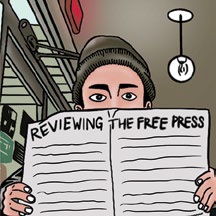
Reviewing The Free Press 2
Benji Rothman
The Winnipeg Free Press has run amok, reviewing each and every Fringe show over the past two decades without consequence or recourse. Now, it’s their turn… again.
In this refurbished work that debuted at last year’s Winnipeg Fringe, Benji Rothman once again takes the Winnipeg Free Press to task. In this (mostly) new, (hopefully) hilarious 45-minute show, Rothman dives deep into their past and exposes their faulty journalism, imbalanced reporting and, of course, embarrassing typos.
Local News
Jewish performers at this year’s Winnipeg Folk Festival July 10-13
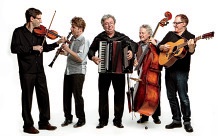
The Black Sea Station
Long ago, there were the klezmorim, itinerant musicians who roamed the back streets of Eastern Europe, playing at parties for meals and a few coins. The sound they honed then was a visceral exploration of life’s joy, and its loss; they could whip audiences into a frenzy of dancing, or bring them to tears with the mournful wail of a clarinet. Today, Winnipeg’s own The Black Sea Station is carrying on this tradition. Featuring Daniel Koulack (bass), Victor Schultz (violin) and Myron Schultz (clarinet) — cofounders of seminal local klezmer act Finjan — along with Moldovan accordion wizard Nikolai Prisacar and multi-instrumentalist Ben Mink, the quintet transports listeners to a time and place long past. Through a mix of original songs rooted in history, and traditional tunes spun up with modern zest, they whirl through the exuberant klezmer sounds of their Eastern European heritage, tending the old ways with deep love and respect.
The Black Sea Station will be performing Sunday, July 13, at 1:00 pm in Snowberry Field.
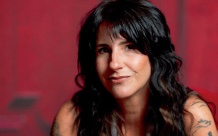
Romi Mayes
Romi Mayes has taken some hard knocks in her life, but she’s never faded away. For more than 25 years, Manitoba’s first lady of blues-rock has been a lynchpin of the Canadian roots scene. She earned that position the old-fashioned way, through her gritty, passionately emotive music. With her sizzling guitars and full-throated rasp, the Juno-nominated performer howls and purrs through razor-edged lyrics, rocking out wherever she can find a stage. She’s long been one of the hardest-working musicians on the circuit, keeping a busy slate of gigs and mentoring up-and-coming artists to get a foothold on the trails she blazed. Now, after a nine-year hiatus from the studio, Mayes has put her scintillating sound back on record with her long-awaited seventh album, Small Victories — a return that leaves no doubt, no matter the ups and downs, Mayes is here to stay.
Romi will be performing Friday, July 11, at 1:00 pm in Burr Oak.
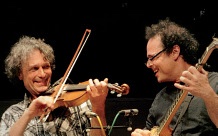
Leonard Podolak (with Matt Gordon)
Ireland’s Matt Gordon is a fiddler and singer, whose fleet-footed clogging and thigh-slapping hambone has taken stages by storm since the 1980s. Leonard Podolak is a virtuosic master of the clawhammer banjo, who for decades has whipped up some of Manitoba’s wildest roots parties with his band, The Duhks. Put those talents together, and they can promise you this much: we’re all gonna have a real good time. Longtime friends and musical collaborators, Gordon and Podolak deliver an exhilarating trip through old-time Appalachian music. Their performances seamlessly blend intricate instrumental lines with heartfelt singing and dazzling dance. They’ve teamed up on a few records over the years, including 2020’s bigband extravaganza Power Wagon: Live At Shanley’s. But the best way to experience this duo’s toe-tapping, hand-clapping chemistry is to see it live.
Podolak and Gordon will be performing A concert with a side of clogging Sunday, July 13, at 3:00 pm in Folk School.
